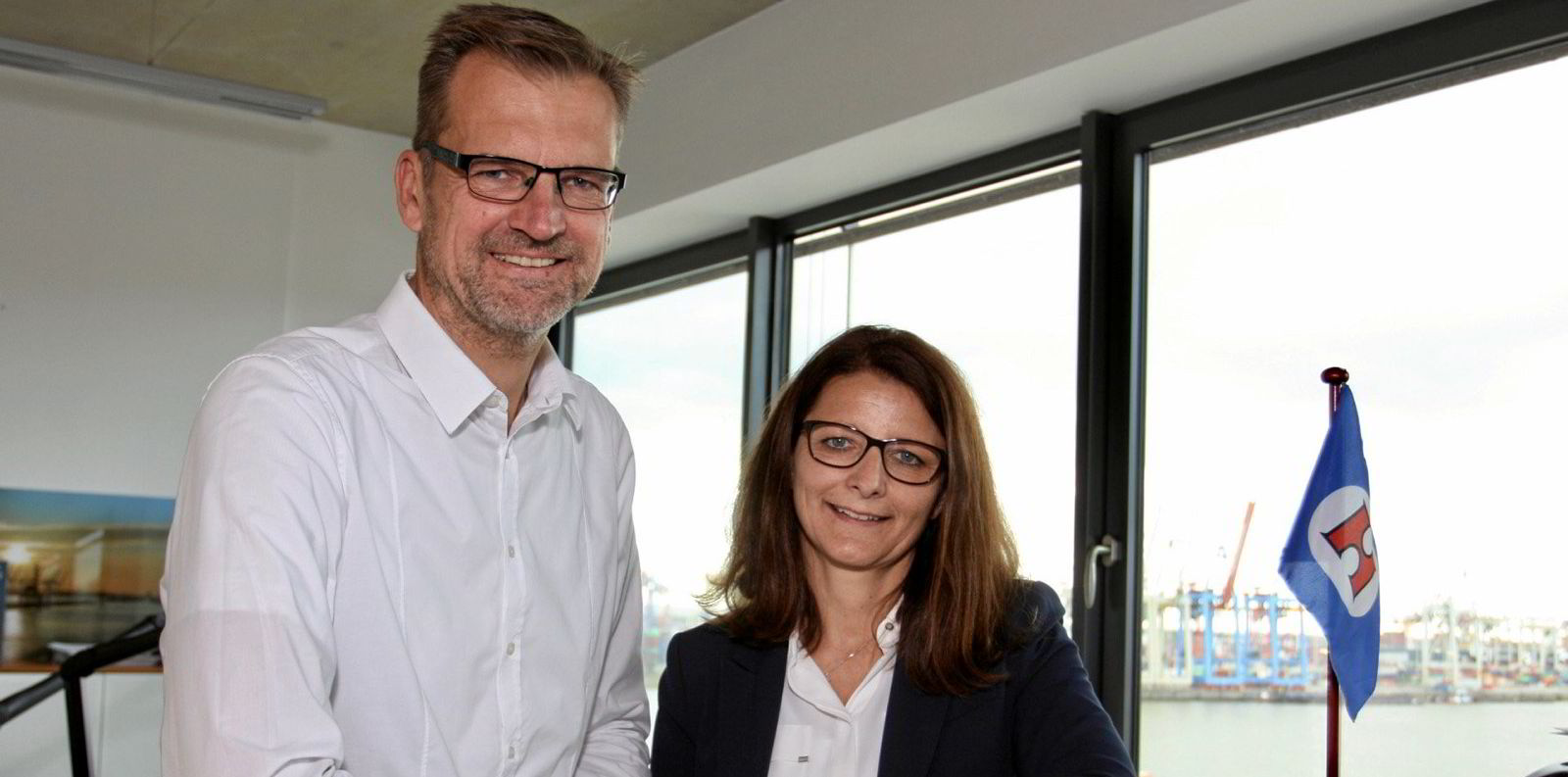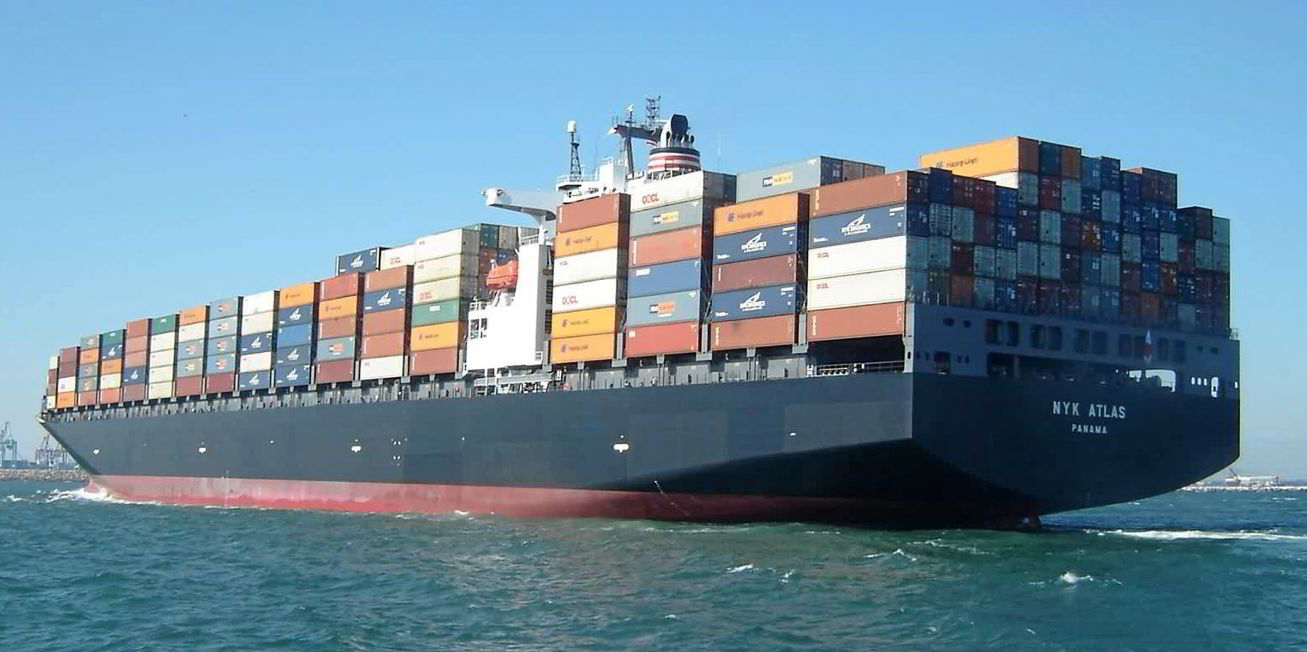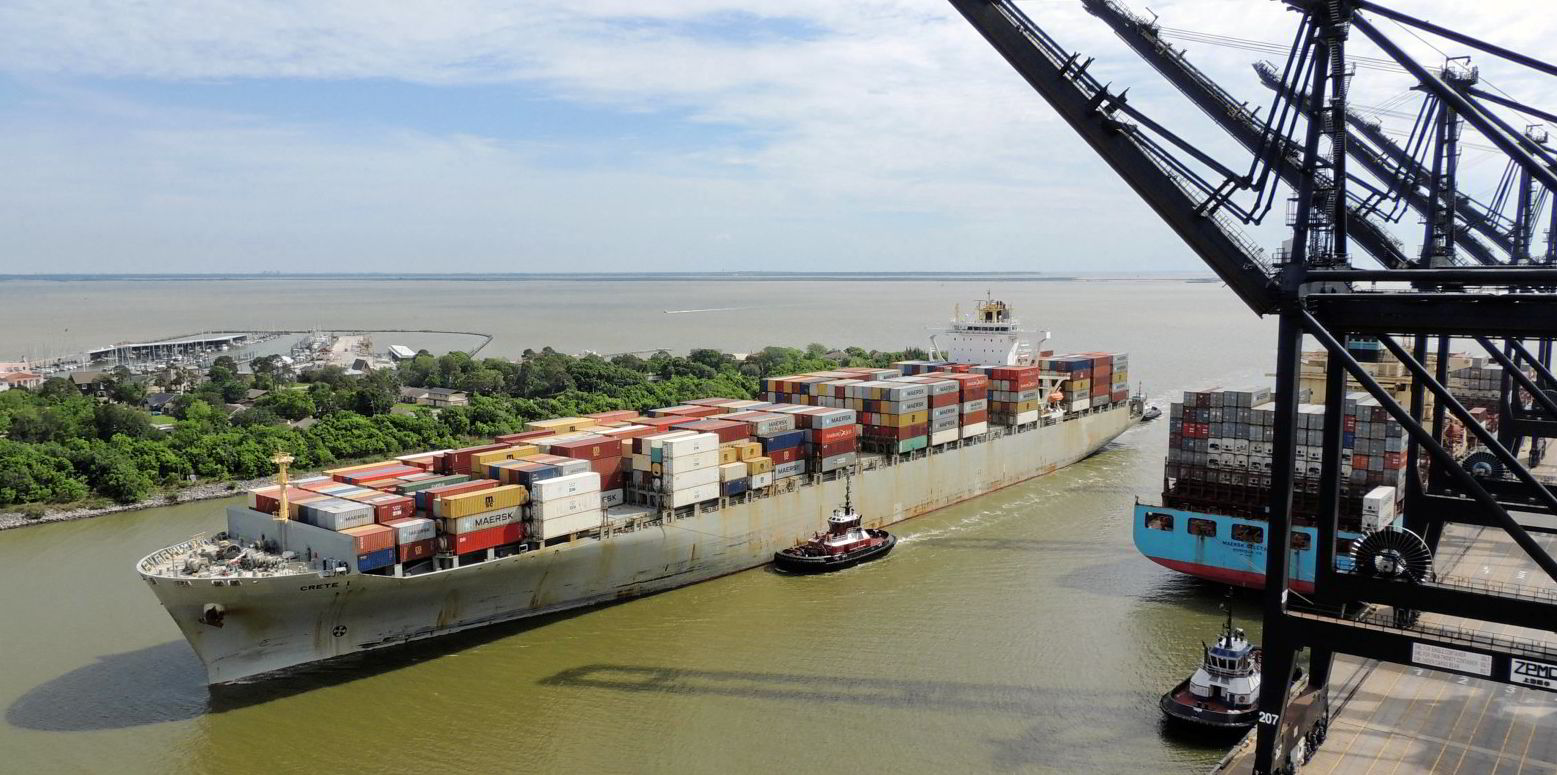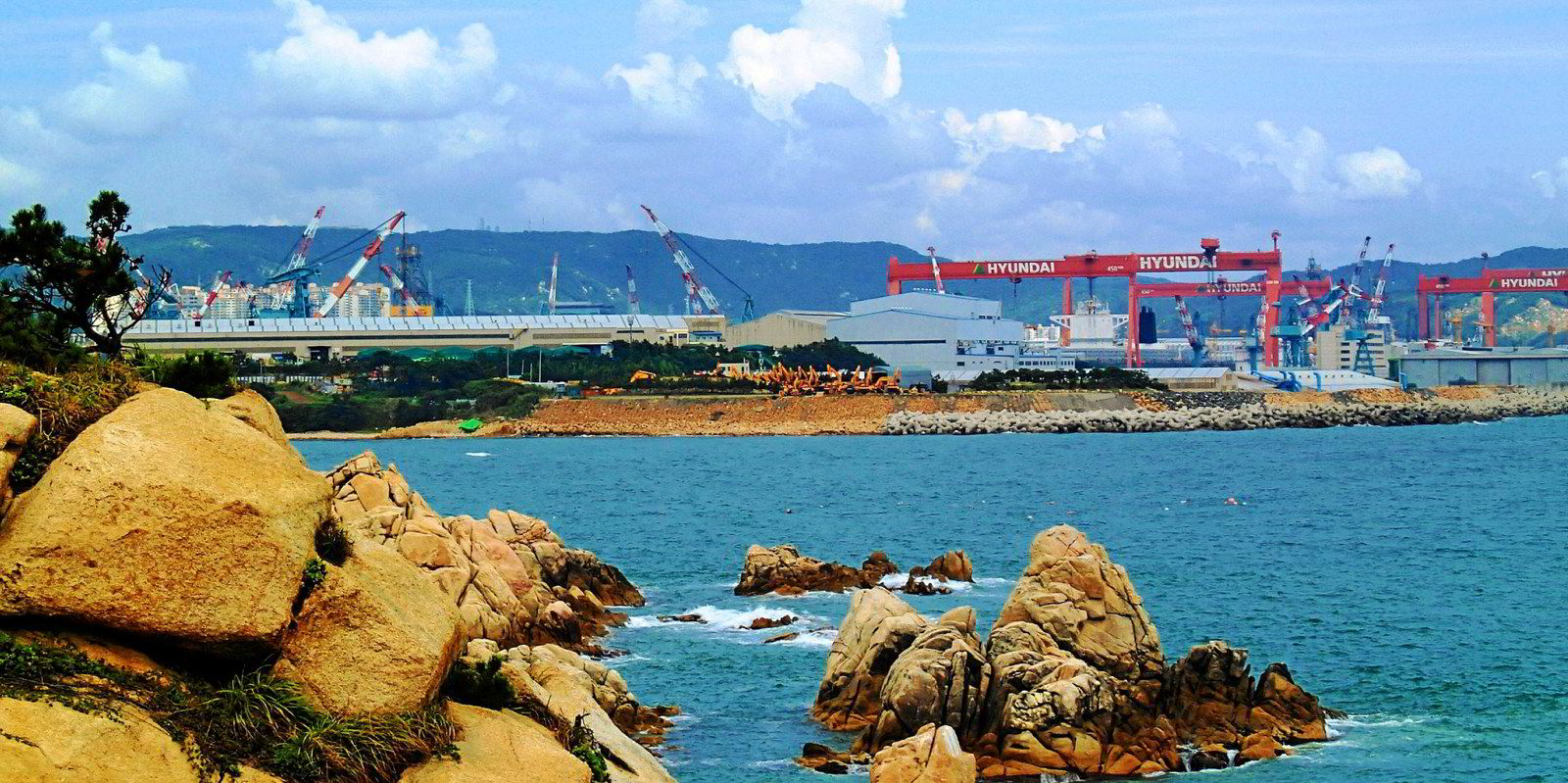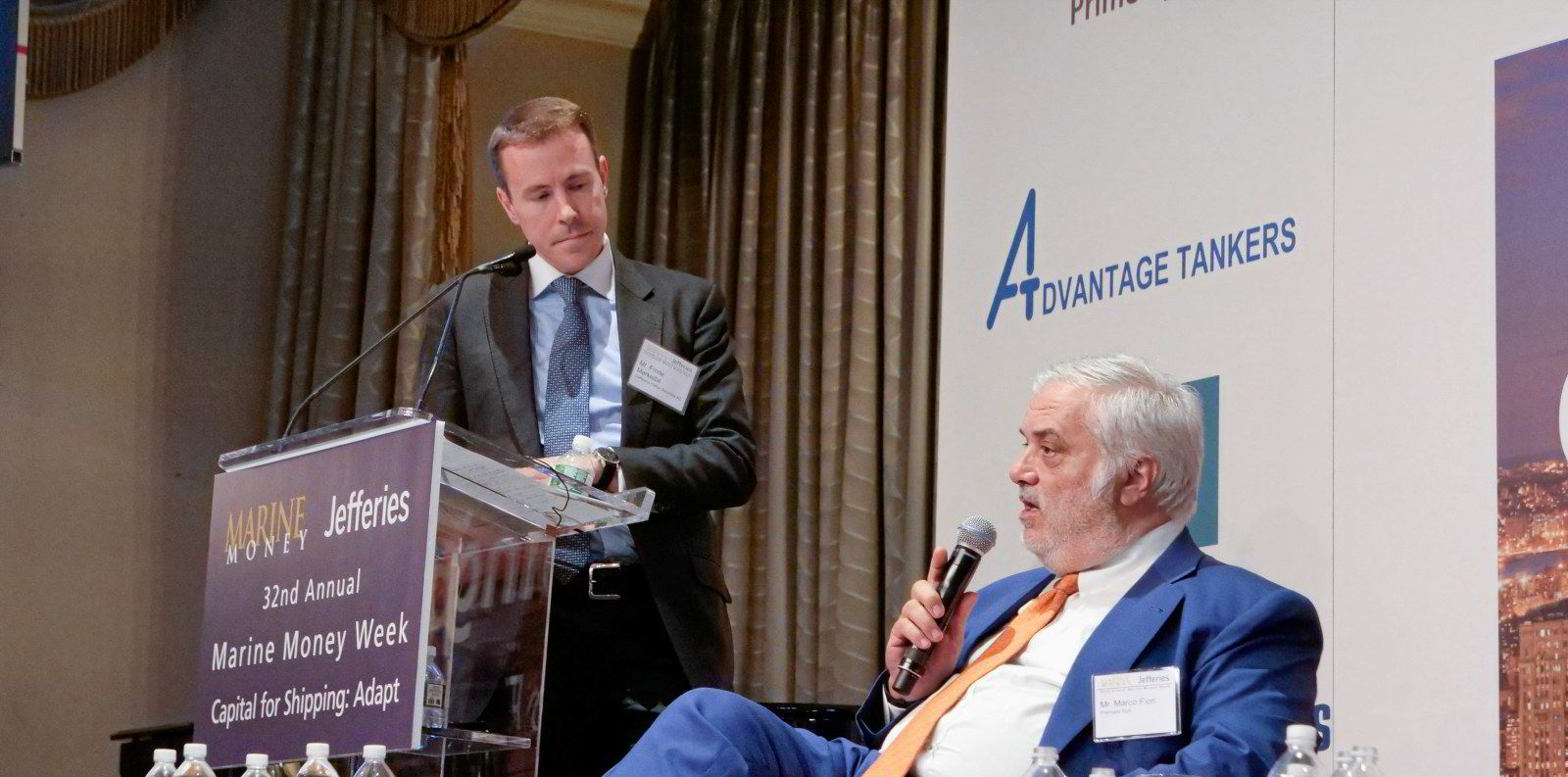Hamburg-based shipbroker Hanse Bereederung is making the most of booming boxship markets as it battles for a slice of rising asset and charter levels.
Bereederung is part of the German-controlled but Cyprus-based Schoeller Group, which operates about 40 containerships of between 1,200 teu and 2,800 teu, multipurpose (MPP) vessels of between 19,000 dwt and 31,000 dwt, and heavylifters.
Claudia Paschkewitz, managing director of operations, told TradeWinds that the buoyant markets made a pleasant change.
"After 12 years, it is fun to fix again," she said.
Michael Zankl, managing director of chartering and sale and purchase (S&P), said: "We are very much enjoying the present market. In the past, we had smaller charter periods of weeks or months. Nowadays, you can fix for at least a year or even two years."
MPP business picking up
Alex Karydis, director of chartering and S&P, said there are not enough containerships to meet demand.
As a result, liner companies have been looking at MPPs as an alternative but, for most services, this is not working out due to vessel design, including a lack of cell guides and slower speeds.
However, the broker said some MPPs are taking "good-paying container cargoes" from A to B and, in general, the MPP market is improving — but is not as hot as the containership side.
Cargo volumes for MPPs have traditionally paid more than charter rates, which in the past were ridiculous, Karydis said.
The vessels are now being fixed for longer periods, which was previously "mostly unthinkable", the broker added.
Year-long charters are easily achievable now.
'Anxiety and stress'
Bereederung said the general boxship demand recovery was reflected immediately in the "anxiety and stress" experienced by charterers since last summer.
Lockdowns meant people spending more money on consumer goods, instead of travel.
Zankl said: "We usually have ships coming off deals after Chinese New Year, so I think we are in a good position at the moment for refixing."
The German broker has just completed a charter extension for a 1,400-teu Peene-type feedership for 13 to 14 months at a new record high of $16,000 per day for this size of vessel.
Karydis said: "We were always looking for three to six-month charters, four to eight months, never 12 months — that would be unthinkable.
"But it was a different market and you wanted to make the best out of the market, hoping it would go up, but it didn't."
But Karydis argued that now there is no reason to fix for three to six months.
"I don't think you will find anyone that would agree to fix for less than 12 months," he said. "Everyone is asking a minimum of 12 months."
But Zankl suggested that some owners are fixing their vessels for just three months to "fix the next one even better".
Rates have tripled
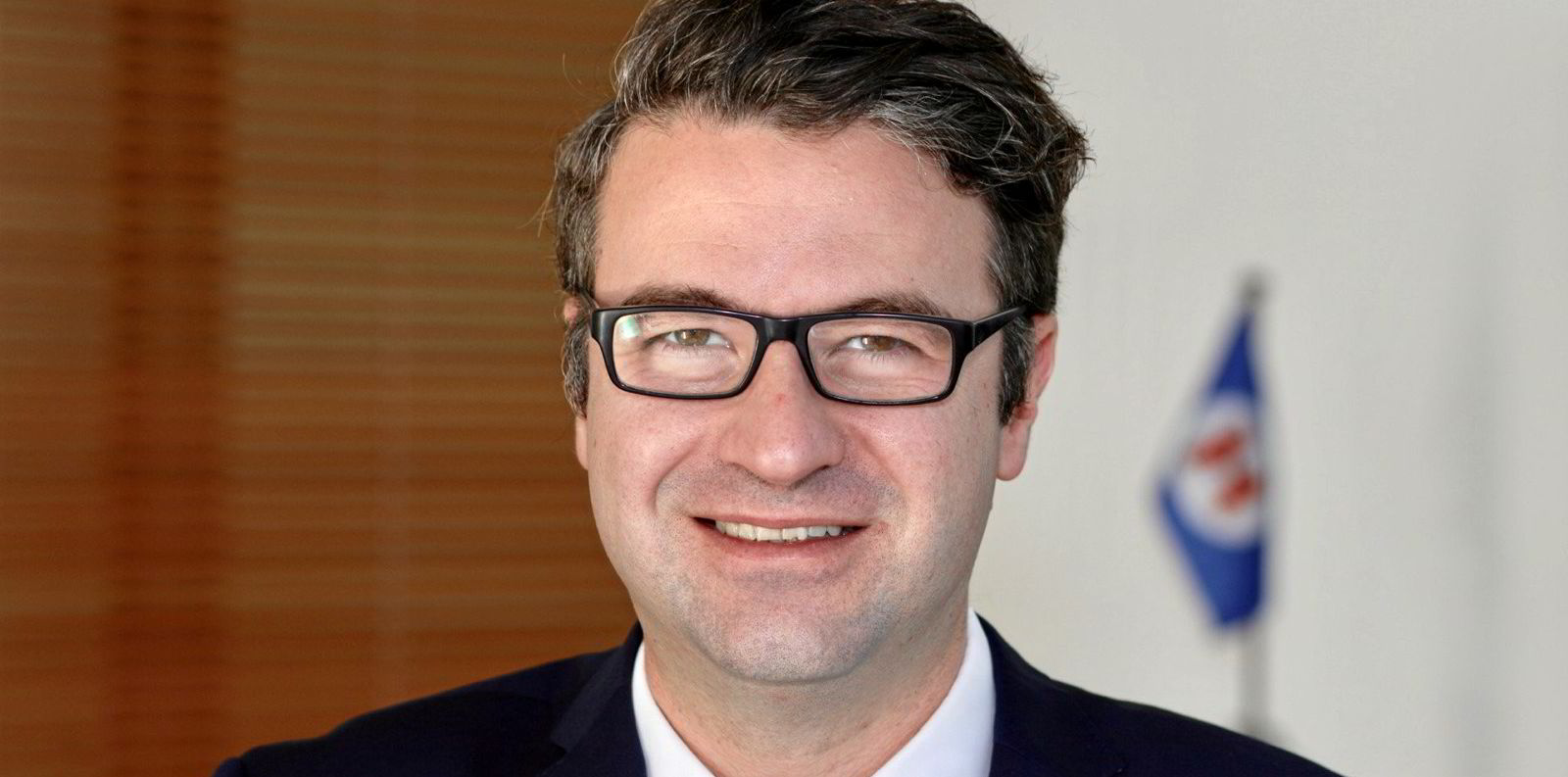
Karydis said a 1,000-teu ship used to achieve $5,000 per day but it is now going for more than $10,000 per day.
A 2,700-teu unit used to be $6,000 per day.
"We fixed a ship in early autumn at $13,000 per day, now it's double that," Karydis said. "So it has tripled in this case, even more."
Rates all depend on the size of the ship.
"Some charterers have responded more eagerly to hefty freights than others," Karydis said.
Post-panamaxes have been clinching "eye-watering" rates for 36-month deals, the broker revealed.
On the S&P side, Bereederunghas been trying to find a secondhand handysize for a buyer in the United Arab Emirates since early February.
Impossible price
The budget was originally $3.5m to $4m for a 10-year-old ship, but the brokerage said this price is now impossible.
"First of all, there are no ships," Karydis said. "The ones that were up for sale, the owners decided to trade them, which is very smart to my way of thinking. Now they will be happy if they find something for $6m."
To buy a 4,250-teu ship, the broker said you need a minimum charter of 36 months in order to go to your investors and "persuade them to go".
Bereederung's joint managing director model has been in place since 2018, when well-known broker Axel Schulz stepped down as boss for health reasons after 32 years in the business.
The German shipbroker was established in 1976 and today has a team of eight staff.
